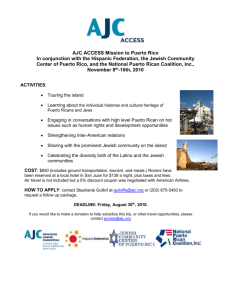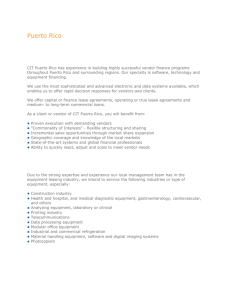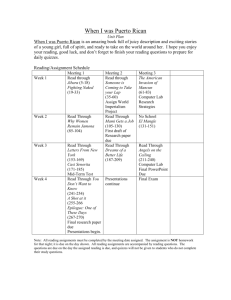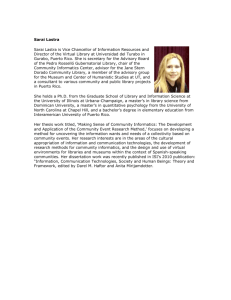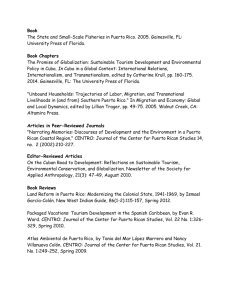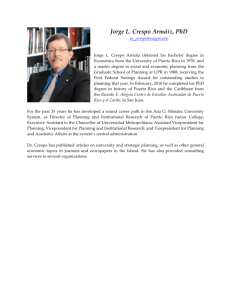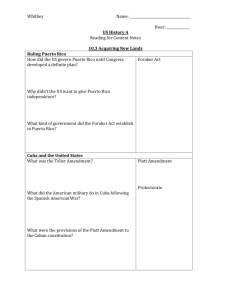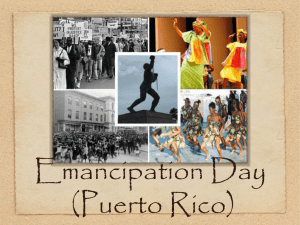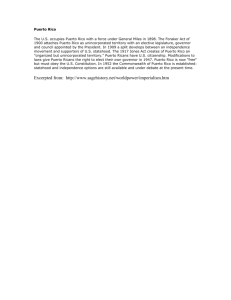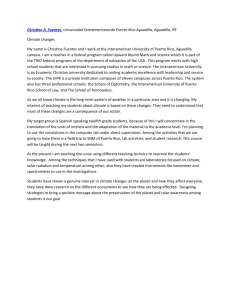to view an information page for this course
advertisement
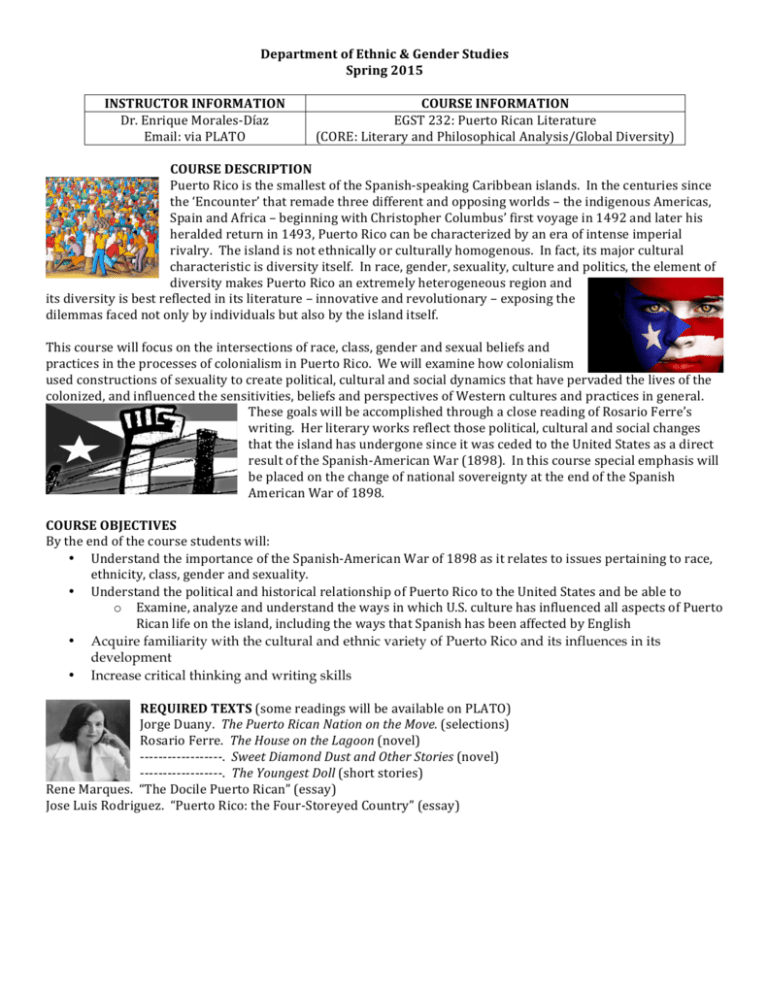
Department of Ethnic & Gender Studies Spring 2015 INSTRUCTOR INFORMATION COURSE INFORMATION Dr. Enrique Morales-­‐Díaz EGST 232: Puerto Rican Literature Email: via PLATO (CORE: Literary and Philosophical Analysis/Global Diversity) COURSE DESCRIPTION Puerto Rico is the smallest of the Spanish-­‐speaking Caribbean islands. In the centuries since the ‘Encounter’ that remade three different and opposing worlds – the indigenous Americas, Spain and Africa – beginning with Christopher Columbus’ first voyage in 1492 and later his heralded return in 1493, Puerto Rico can be characterized by an era of intense imperial rivalry. The island is not ethnically or culturally homogenous. In fact, its major cultural characteristic is diversity itself. In race, gender, sexuality, culture and politics, the element of diversity makes Puerto Rico an extremely heterogeneous region and its diversity is best reflected in its literature – innovative and revolutionary – exposing the dilemmas faced not only by individuals but also by the island itself. This course will focus on the intersections of race, class, gender and sexual beliefs and practices in the processes of colonialism in Puerto Rico. We will examine how colonialism used constructions of sexuality to create political, cultural and social dynamics that have pervaded the lives of the colonized, and influenced the sensitivities, beliefs and perspectives of Western cultures and practices in general. These goals will be accomplished through a close reading of Rosario Ferre’s writing. Her literary works reflect those political, cultural and social changes that the island has undergone since it was ceded to the United States as a direct result of the Spanish-­‐American War (1898). In this course special emphasis will be placed on the change of national sovereignty at the end of the Spanish American War of 1898. COURSE OBJECTIVES By the end of the course students will: • Understand the importance of the Spanish-­‐American War of 1898 as it relates to issues pertaining to race, ethnicity, class, gender and sexuality. • Understand the political and historical relationship of Puerto Rico to the United States and be able to o Examine, analyze and understand the ways in which U.S. culture has influenced all aspects of Puerto Rican life on the island, including the ways that Spanish has been affected by English • Acquire familiarity with the cultural and ethnic variety of Puerto Rico and its influences in its development • Increase critical thinking and writing skills REQUIRED TEXTS (some readings will be available on PLATO) Jorge Duany. The Puerto Rican Nation on the Move. (selections) Rosario Ferre. The House on the Lagoon (novel) -­‐-­‐-­‐-­‐-­‐-­‐-­‐-­‐-­‐-­‐-­‐-­‐-­‐-­‐-­‐-­‐-­‐-­‐. Sweet Diamond Dust and Other Stories (novel) -­‐-­‐-­‐-­‐-­‐-­‐-­‐-­‐-­‐-­‐-­‐-­‐-­‐-­‐-­‐-­‐-­‐-­‐. The Youngest Doll (short stories) Rene Marques. “The Docile Puerto Rican” (essay) Jose Luis Rodriguez. “Puerto Rico: the Four-­‐Storeyed Country” (essay)
